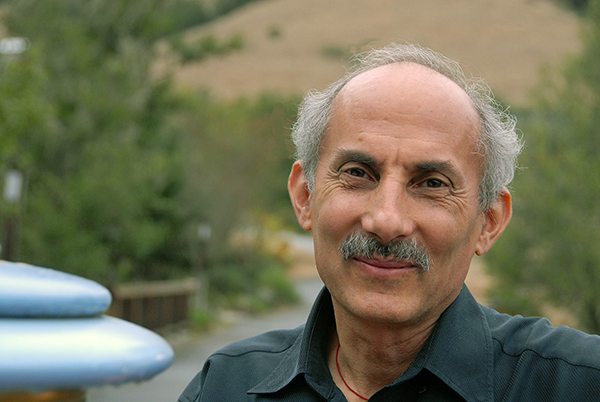Jack Kornfield on Connecting Our Inner and Outer Lives
Jack Kornfield is one of the key teachers to introduce Buddhist mindfulness practice to the West. He holds a PhD in clinical psychology and is a founding teacher of the Insight Meditation Society and Spirit Rock Meditation Center. He is the best-selling author of many books, including After the Ecstasy, the Laundry, The Wise Heart: A Guide to the Universal Teachings of Buddhist Psychology, and Bringing Home the Dharma: Awakening Right Where You Are.
Kornfield recently led a retreat at the Garrison Institute, where we spoke with him about bringing together personal growth and social transformation.
Watch a video of Kornfield on how to avoid burnout.
Tell us about the relationship between personal spiritual work and social justice work.
We live in a society that has divided things into separate spheres. We take care of our body at the gym, we do our work in our offices, and we take vacations at the beach. And then we do our spiritual activities in the church or a mosque or a temple and so forth. They’re all in separate places, and often characterized by an absence of the sacred.
This false division in our society plays out on the world stage through warfare, continuing racism, and environmental destruction. We’ve also separated our inner and outer lives. The outer developments that humans have now created so miraculously—nanotechnology, biotechnology, space technology, the worldwide internet—have to be matched by an inner development of heart and mind, and the understanding of interconnection. Without that, we create enormous suffering because we’ve divided our lives.
What’s true, however, is that it’s all of a piece. The sacred can’t be separated from the rest of life. So the whole notion that we’re going to separate spiritual work and social justice is a mistake.
Many activists and caregivers are often stressed out and experience burnout. What can they do to avoid burnout so that they can continue doing the work that they love?
It’s critical for them to have a contemplative practice or an inner way of regulating themselves. We have this mistaken notion in Western culture that compassion means caring for someone else. “Oh, that poor person there.” We feel compassionate for them because they’re suffering and we want to do something to alleviate that suffering.
However, if you look at the language of Buddhist compassion in its traditional Asian roots, the word compassion always includes one other person: yourself. And so the key question that an activist has to ask is: Am I being compassionate for myself? Otherwise, it falls into a kind of codependence or caretaking, which is unsustainable. And part of the beauty of contemplative life is that it connects us with something more vast.
What does it connect us to?
When we quiet our minds and open our hearts we sense that we’re part of a vast unfolding that’s timeless. This allows us to plant beautiful seeds, knowing full well that we may not be there to see the results. Our gift is to be able to plant a garden—whether it’s in our family or community, whether we’re raising a beautiful child, teaching in a school, planting a garden, creating a conscious business, or working on the frontlines for justice between nations.
We don’t get to choose how it comes out, but we get to set our intention and then act from our deepest and best values. To meditate allows us to connect with something that’s vast and timeless and then use that energy of connectedness to move through life in a way that serves ourselves and others.

I would like to listen to the podcast with Jack Kornfield. How do I purchase his seminars to listen to ?